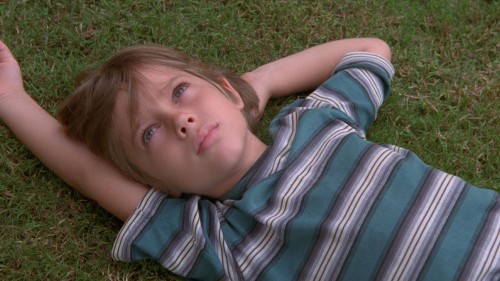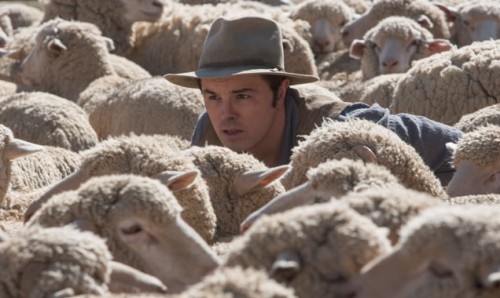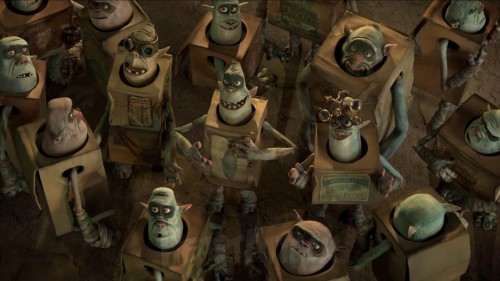By Greg Popil
Chuck Palahniuk’s novel “Fight Club” has an early sequence that would be unfamiliar to fans of the film. When the narrator first encounters Tyler Durden, he is walking on a beach. Tyler is sitting naked, surrounded by several pieces of driftwood. The sun is hitting the pieces of wood perfectly so their shadow forms a human hand, and Tyler sits in its palm. The narrator questions the point of this, since the sun will move in a few minutes and the image will dissipate. Tyler replies that one has to work hard to achieve a moment of perfection.
Richard Linklater would understand this sentiment. The story of the filming of “Boyhood” is rapidly becoming legend: filmed semi-secretly, Linklater filmed the story of a young boy and his family over the course of 12 years, periodically reuniting them to film scenes as the boy (Ellar Coltrane) ages from six to 18. Taken in a vacuum, it’s a jaw-droppingly ambitious endeavor, the kind that would have deserved kudos even if it had fallen short of greatness. But “Boyhood” is great, the kind of beautiful, thoughtful, fully realized epic that doesn’t need to call attention to its gimmick because the characters are the center, and the filmmaking is the garnish.
“Boyhood” introduces us to Mason (Coltrane), a bright but struggling kid living with his mom Olivia (Patricia Arquette) and sister Samantha (Linklater’s daughter Lorelei). Mason is a bright kid, but struggling: an early scene where Samantha shows off her multiple A+ papers to their grandmother while Mason silently sits by is a heartbreaker. Olivia dotes on her children but wants more out of life, and dad Mason Sr. (Ethan Hawke) has not been around for awhile. We see where this is going, except it doesn’t: Mason Sr. is hardly father of the year, but he loves his kids and tries to atone for past mistakes. Early attempts to take them bowling and open a connection are painfully awkward, but he actually grows into the role, especially as he starts a new family.
Similarly, Olivia is portrayed as neither saint nor victim. She dotes on her kids, and does the kind of day-to-day life building that can look uncool in a child’s eyes compared to dad and his bitchin’ GTO, but she also has a selfish streak and a tendency to both expose her kids to bad relationships (her abusive second husband, played by Marco Perella, is the closest the film has to a villain) and sabotage even the ones that are pretty good. She works very hard over the course of the film to improve her families’ station, but can’t quite allow herself to be happy.
Naturally, girls begin to enter the picture, first as objects of curiosity, then tentative connection (there’s a conversation about books in an alleyway that’s so natural and awkward that it made me grin from ear to ear), then finally as romantic foils. The wax and wane of a relationship with a beautiful, sweet but ultimately incompatible young woman (Zoe Graham) is explored completely and without any of the tiresome melodrama that permeates most teen romances.
If all of this sounds unremarkable, that’s the point. Linklater is making a grand statement without making any Grand Statements; there’s no “American Beauty”-esque “look-how-beautiful-life-can-be” grandstanding. From the first painful scene of six-year-old Mason overhearing his mom tell her boyfriend how much she misses her freedom on, the emotions in “Boyhood” are largely internalized in a way that feels real. There’s a scene involving a haircut that includes no screaming matches or crying jags, but it made my fists ball up all the same.
The cast is fantastic: Coltrane is a revelation, but so is the younger Linklater, who perfectly transitions from a bratty thorn in Mason’s side to the kind of cool older sister who’d let Mason and his girlfriend crash in her dorm. Hawke contributes yet another fearless performance to his Linklater canon, and Arquette, a wonderful actress who has spent far too much time stuck in lame procedurals, conjures oceans of joy and disappointment as the years slip past her. Like the post-breakup Beatles, the four complete each others’ lives even when they’re apart.
By allowing the passage of time to organically move, Linklater has created a movie that sprawls without ever looking back, because it is always rooted in the present. Pop songs, video games and world events mark the passage of time without seeming nostalgic, because they were what people cared about when the scenes were filmed. The changes in the cast members happen a lot like real-life changes: so gradually, you end up stunned when you realize how massive they are. Linklater worked very, very hard on this wonderful film. He earned his perfection.
Rating: 81/81




Leave a Reply